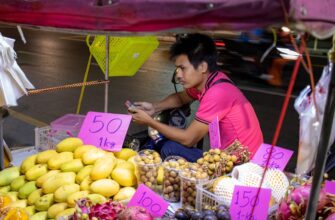Introduction
Ho Chi Minh City (HCMC) has emerged as Vietnam’s crypto hub, with peer-to-peer (P2P) USDT trading gaining massive popularity. This method allows direct transactions between buyers and sellers, bypassing traditional exchanges. For residents and visitors in Saigon, P2P offers flexibility, competitive rates, and accessibility – especially crucial in a market where crypto operates in a regulatory gray zone. This guide covers everything from platform choices to security tips for seamless USDT trading in Vietnam’s bustling economic capital.
What is P2P Trading and Why Use It for USDT?
P2P trading connects buyers and sellers directly through online platforms, with USDT (Tether) serving as a stablecoin pegged 1:1 to the US dollar. In Ho Chi Minh City, this method thrives due to:
- Banking Flexibility: Avoid bank restrictions by using cash transfers, e-wallets, or direct cash meetups.
- Localized Payments: Trade in VND via popular Vietnamese methods like bank transfer, Momo, or ZaloPay.
- Better Exchange Rates: Negotiate rates directly, often beating centralized exchanges.
- Anonymity: Reduced KYC requirements compared to traditional crypto platforms.
How to Trade USDT via P2P in Ho Chi Minh City: Step-by-Step
Follow this process for successful transactions:
- Choose a Platform: Sign up on trusted P2P marketplaces like Binance P2P, Remitano, or Paxful.
- Verify Your Account: Complete basic ID verification for higher transaction limits.
- Find a Counterparty: Filter sellers/buyers in HCMC by payment method, price, and transaction volume.
- Initiate Trade: Lock in an offer and follow platform escrow instructions. For in-person deals, agree on public meetup spots like coffee shops in District 1 or 3.
- Complete Payment: Transfer VND via agreed method (e.g., Vietcombank transfer or cash handover).
- Confirm & Release: Seller releases USDT from escrow upon payment confirmation.
Top Platforms for P2P USDT Trading in Ho Chi Minh City
These platforms dominate Saigon’s P2P scene:
- Binance P2P: Highest liquidity with VND pairs and robust escrow protection.
- Remitano: Popular Vietnamese interface with cash meetup options.
- Paxful: Diverse payment methods including gift cards and mobile top-ups.
- LocalBitcoins (supports USDT): Strong reputation for in-person cash trades.
7 Essential Tips for Safe P2P Trading in HCMC
Protect yourself with these strategies:
- Verify counterparty ratings and trade history meticulously
- Use platform escrow – never transact outside the system
- For cash meetings: Choose crowded public locations during daylight
- Screenshot all transaction evidence and chat logs
- Start with small amounts to test new trading partners
- Beware of too-good-to-be-true offers (common scam tactic)
- Enable two-factor authentication on all accounts
Legal Considerations for Crypto in Vietnam
While Vietnam hasn’t legalized cryptocurrency as payment, P2P trading operates in a tolerated space. The State Bank prohibits crypto for settlements, but individuals can legally hold and trade digital assets. Recent government moves toward a regulatory framework suggest increasing acceptance. Always declare income from trading for tax compliance.
Frequently Asked Questions (FAQ)
Q: Is P2P USDT trading legal in Ho Chi Minh City?
A: Trading isn’t illegal, but using crypto for payments violates banking laws. P2P as asset exchange remains unregulated but widely practiced.
Q: What payment methods work best for P2P in HCMC?
A: Bank transfers (VCB, VietinBank), e-wallets (Momo, ZaloPay), and cash meetups are most common.
Q: How long do P2P transactions take?
A: Bank transfers: 10-30 minutes. E-wallets: Instant. Cash meetups: Immediate upon verification.
Q: What are typical transaction fees?
A: Most platforms charge 0.1-1% to sellers. Bank transfers may have small fees.
Q: Can foreigners trade USDT via P2P in Saigon?
A: Yes, with a local bank account or cash. Platforms require passport verification for non-residents.








